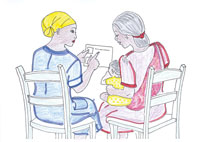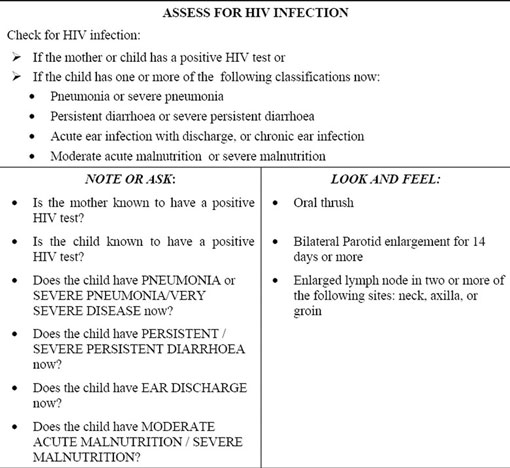9.1 Assess for HIV infection

An important aspect of supporting a mother with a child who has HIV is to develop a good professional relationship with her so that she is able to trust you and give you the information you need to provide the best possible services for her and her child. If you ask questions in a thoughtless or judgmental way, the mother may be reluctant to give you the information that you need. Good communication skills will help you to establish a rapport with the mother and help her to understand how to look after the sick child.
You should also reassure the mother that as far as possible, what you discuss will remain confidential. You will learn more about good counselling skills in Study Session 14 of this Module.
When you assess a child for HIV infection, first you should ask about the HIV status of the mother and the HIV status of the child. Then you should note if the child has the following conditions:
- Pneumonia or severe pneumonia now
- Persistent or severe persistent diarrhoea now
- Acute ear infection with ear discharge or chronic ear infection
- Moderate acute malnutrition or severe malnutrition.
If the mother or child is known to be HIV-positive, or if the child has one or more of the above conditions, you should assess the child for HIV infection.
Box 9.1 below reproduces the relevant section from the Assess and Classify chart which tells you how to assess a child for HIV infection.
Box 9.1 Assess for HIV infection
You are now going to look at how to test for and interpret HIV test results.
Learning Outcomes for Study Session 9

